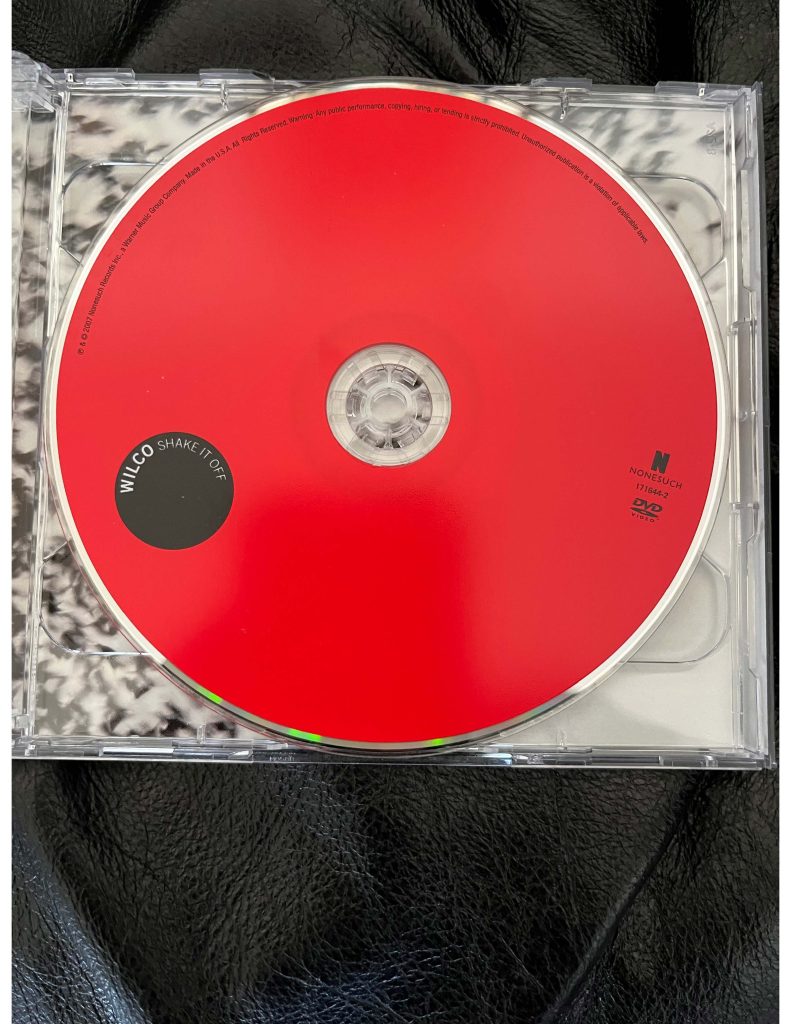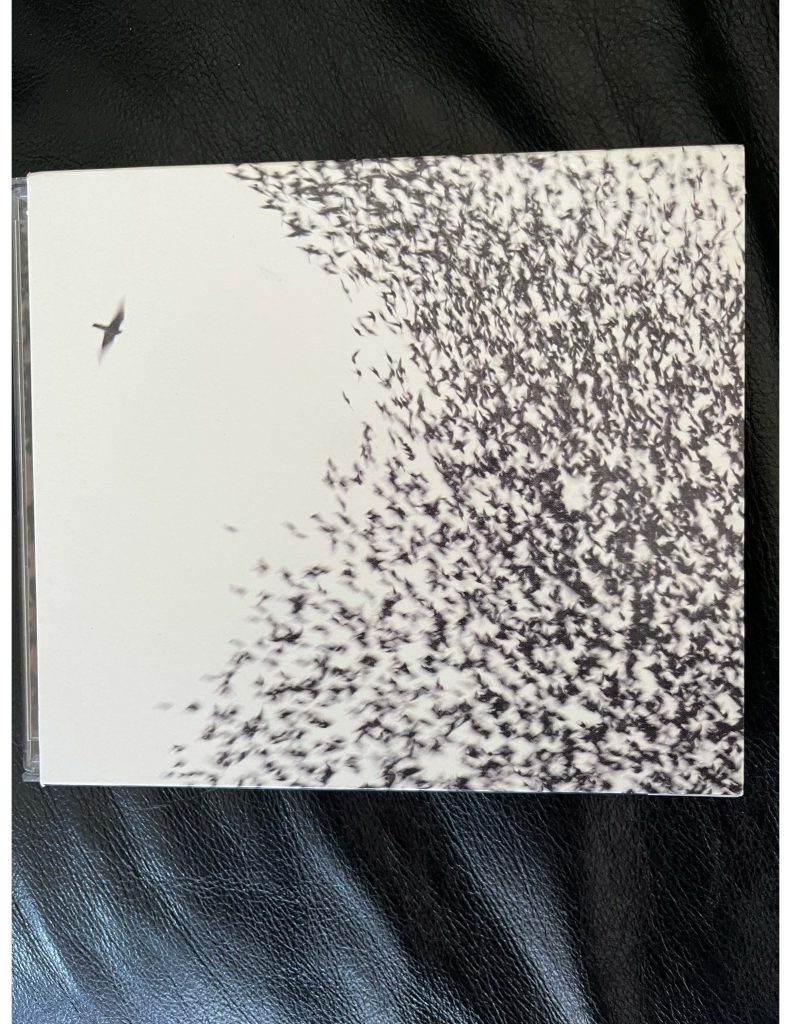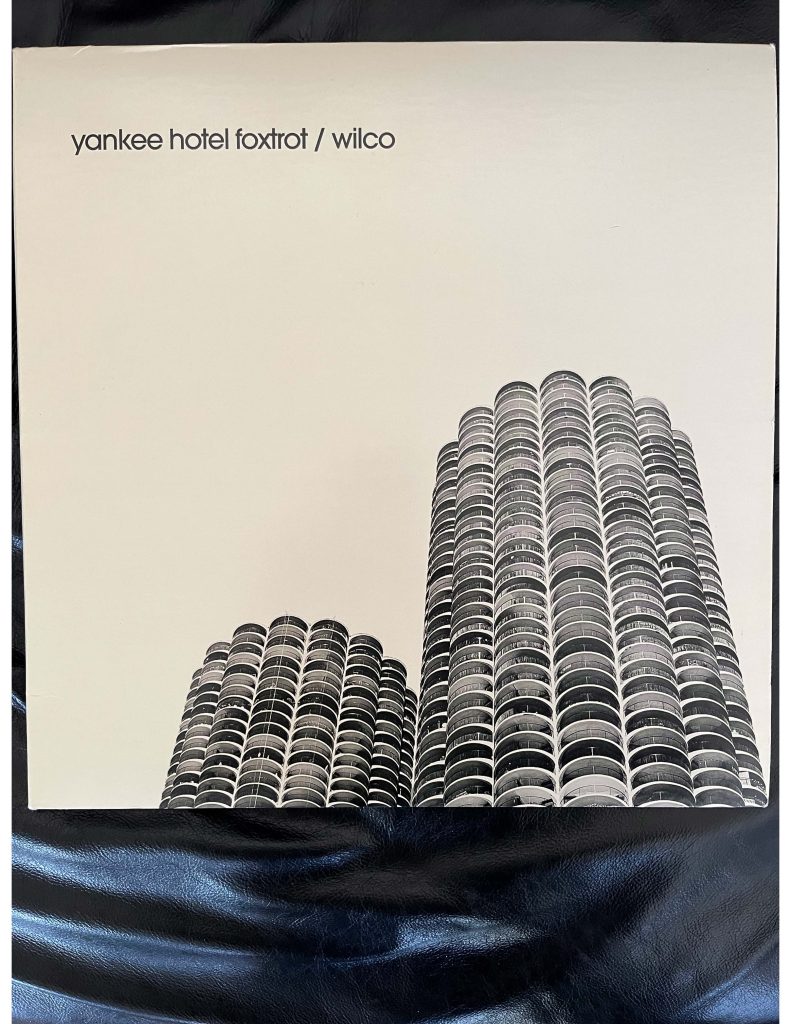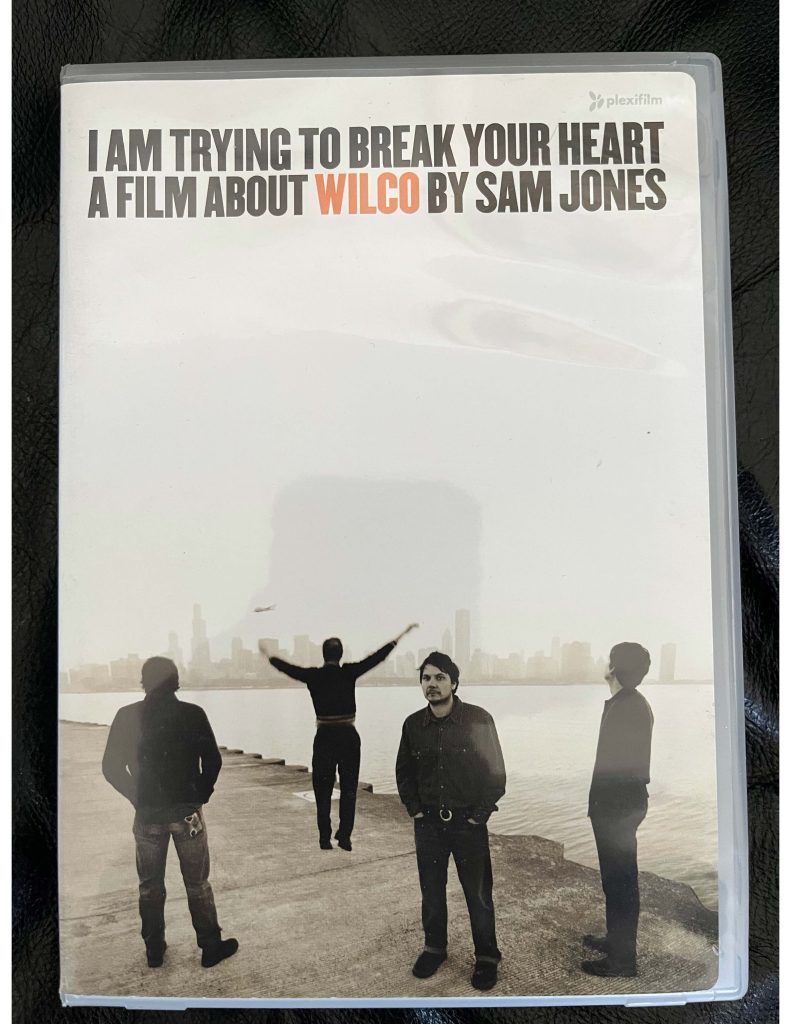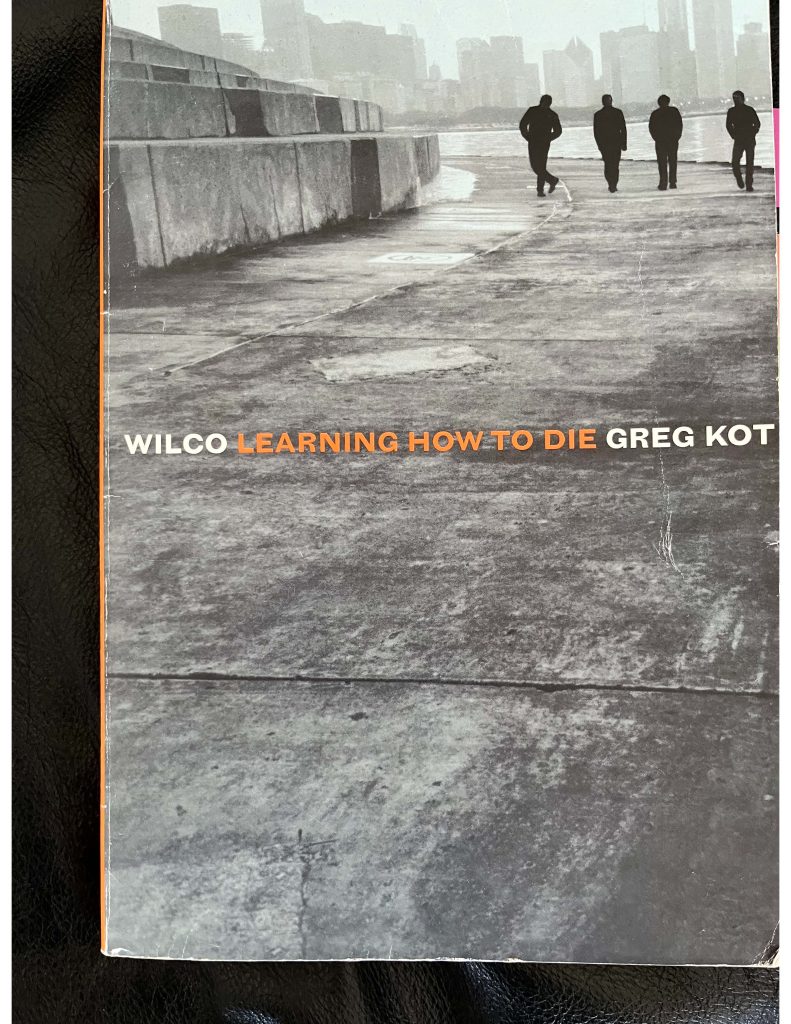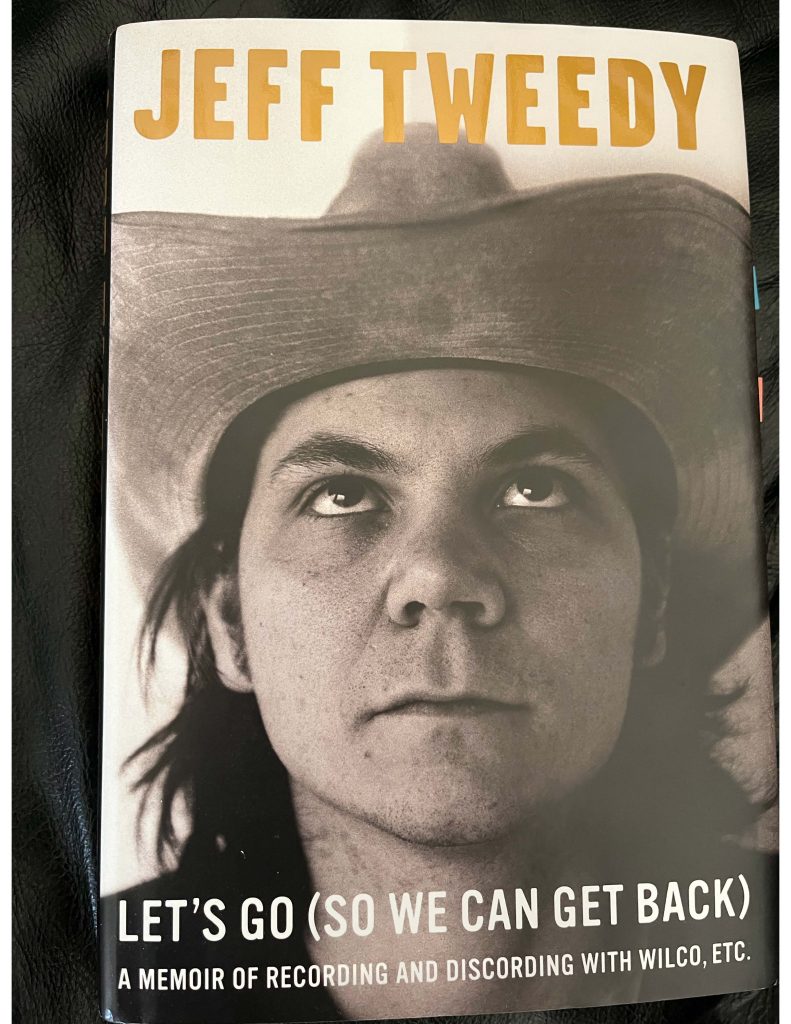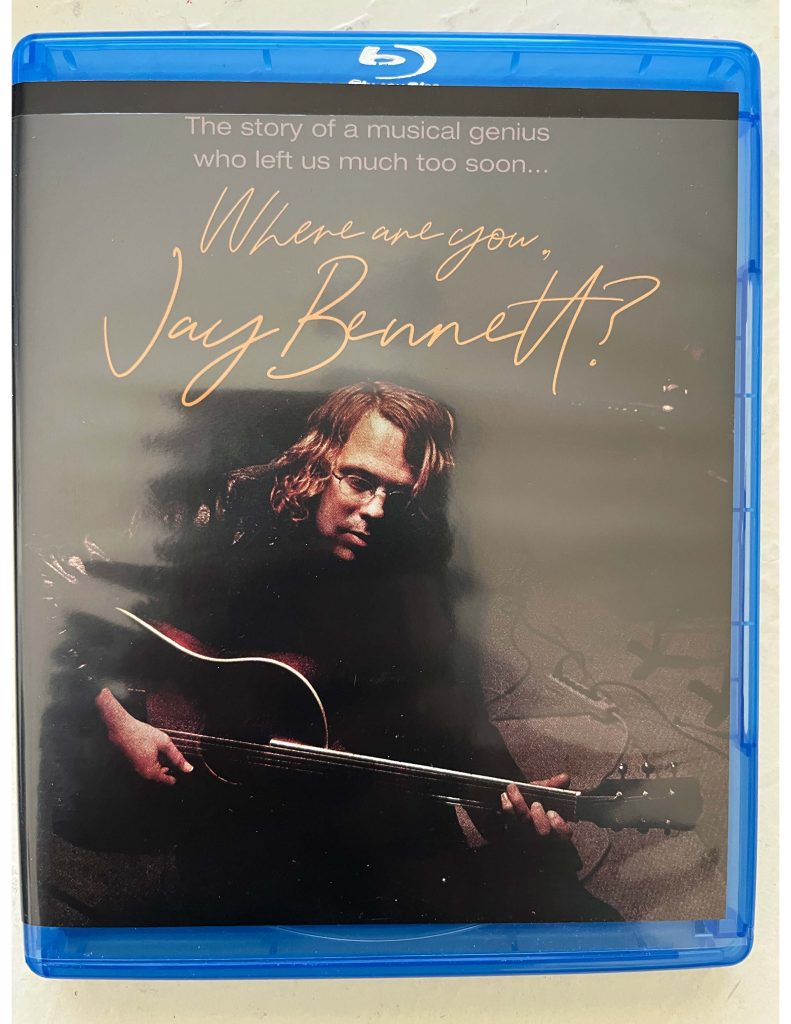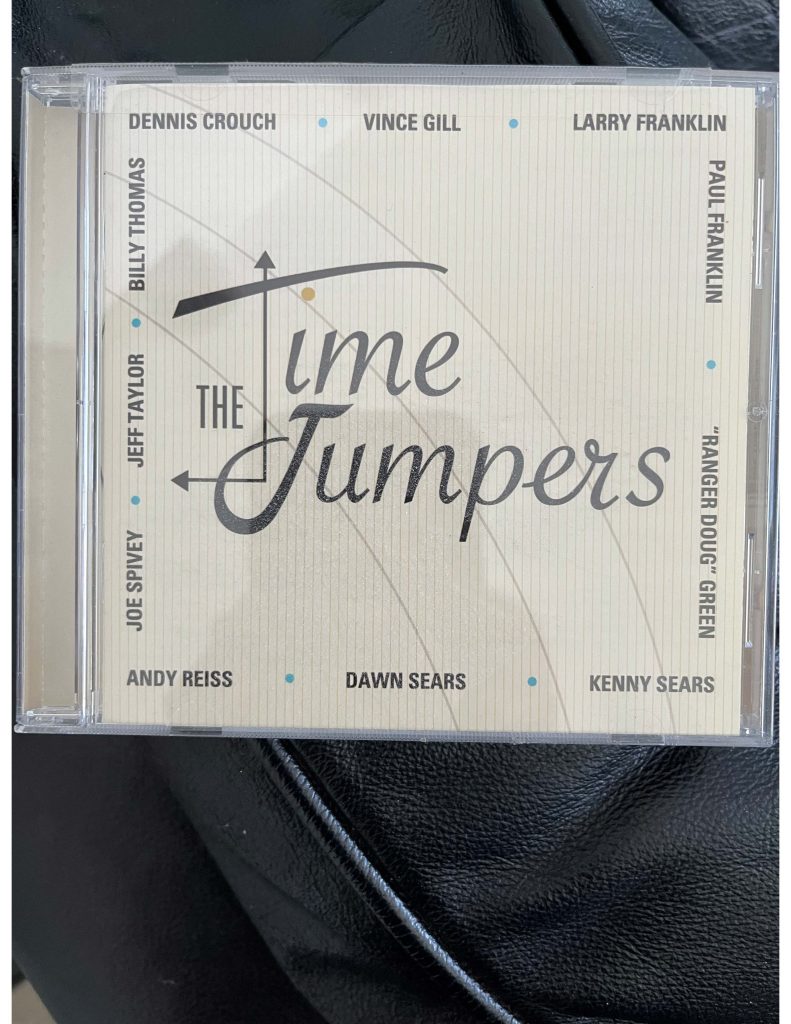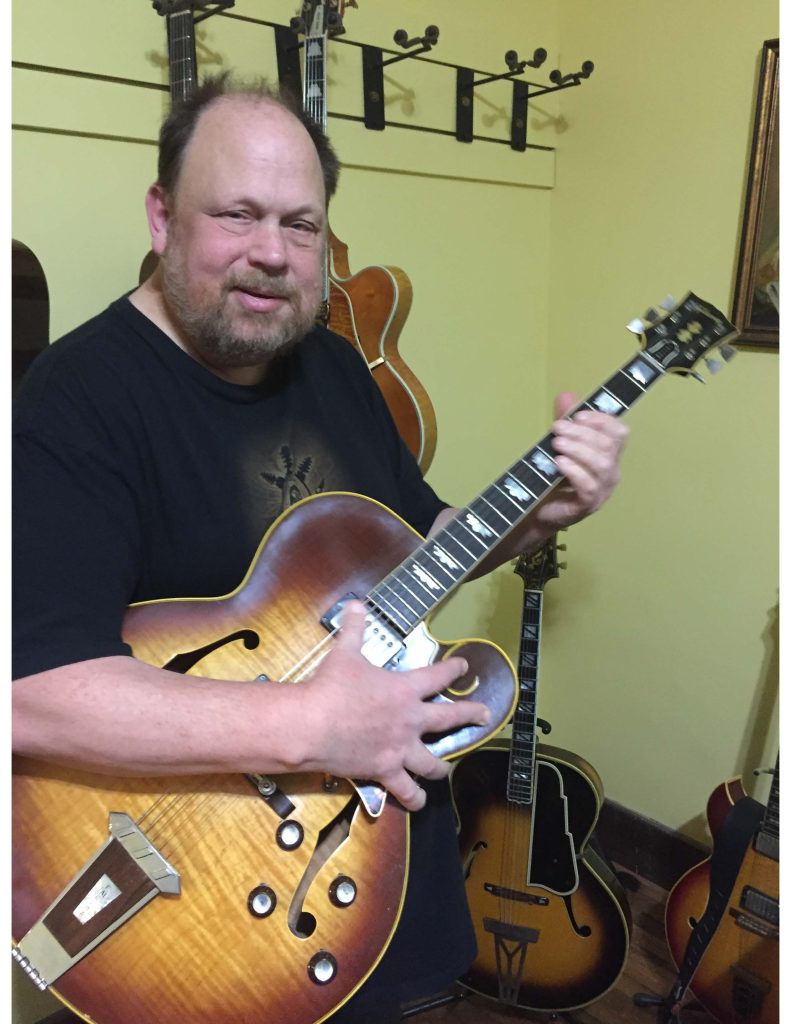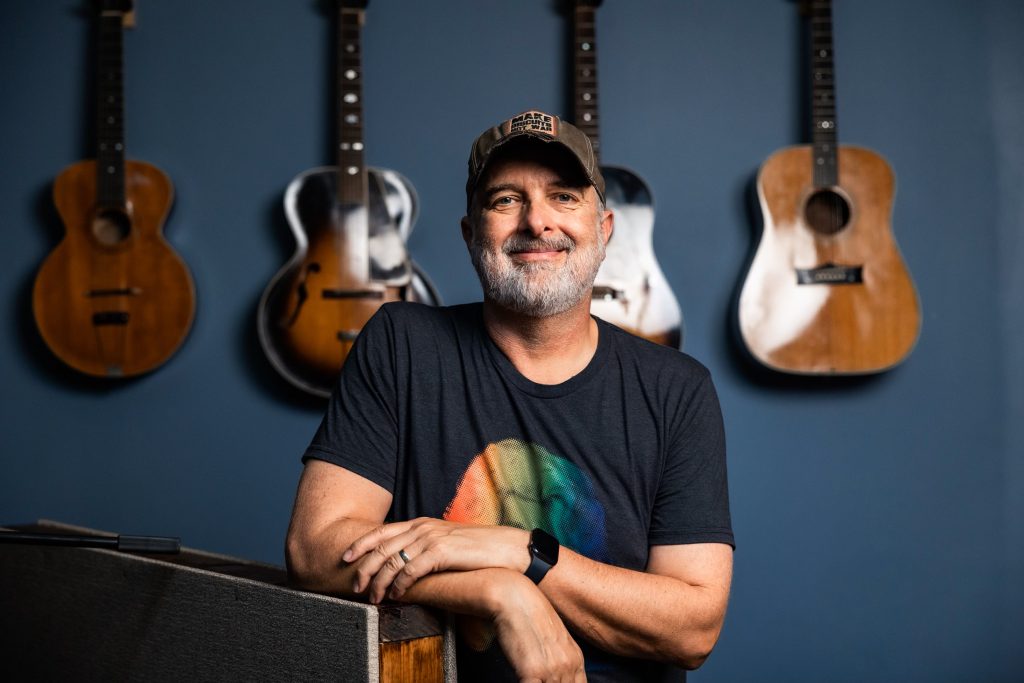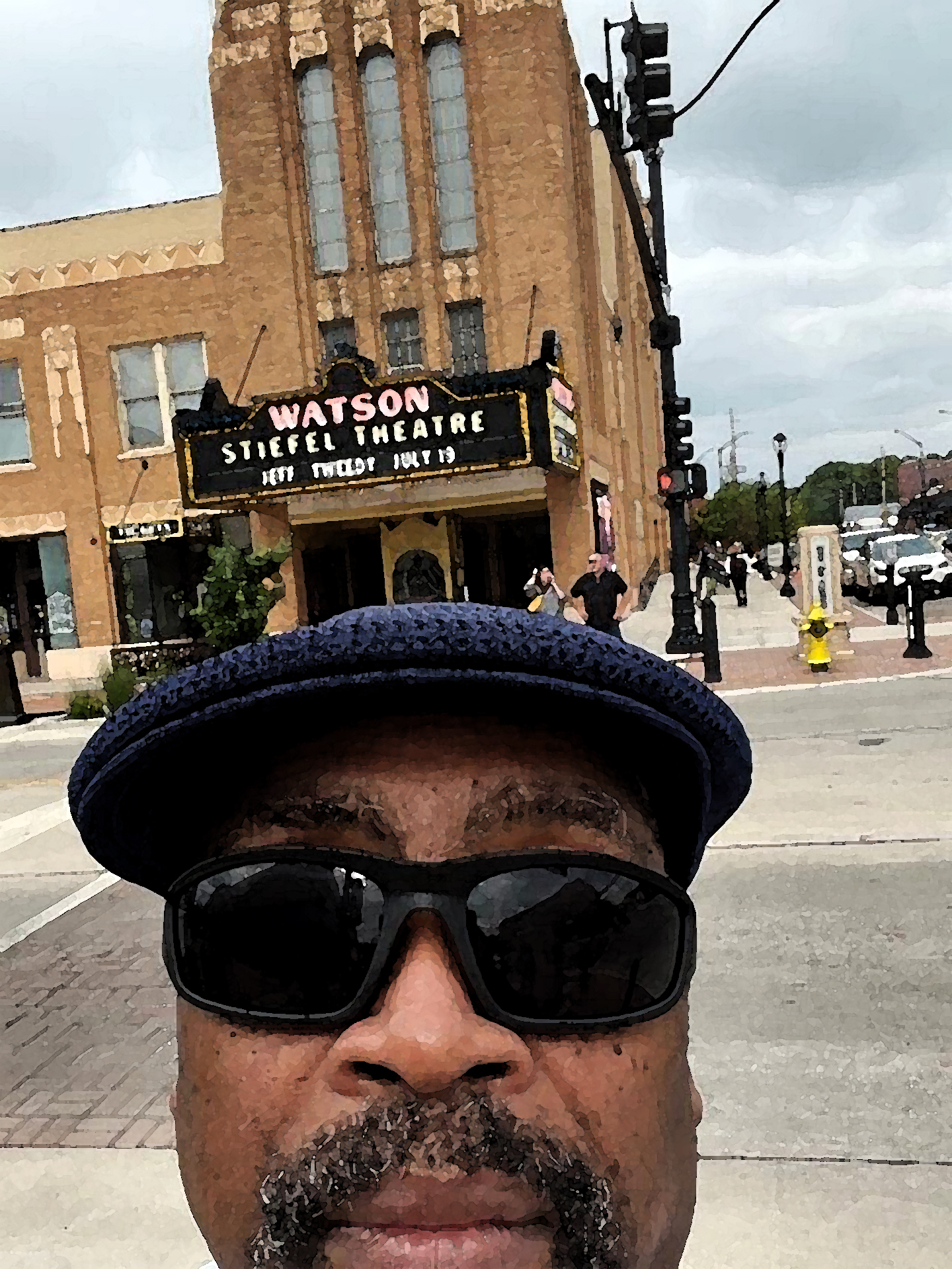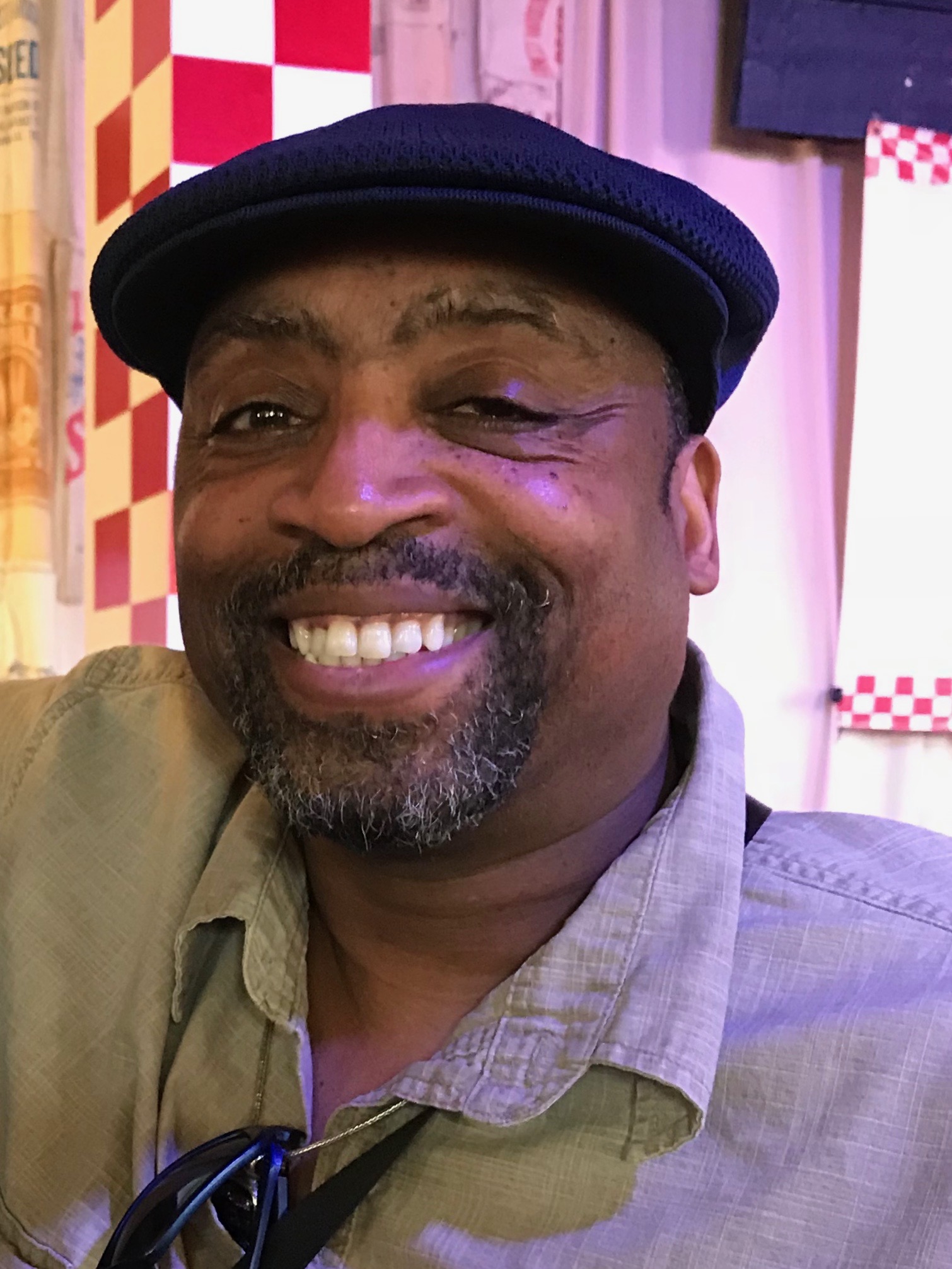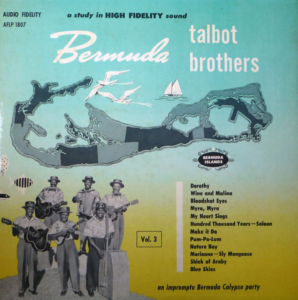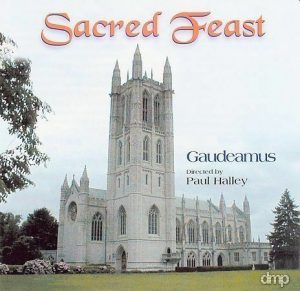In the last episode, I shared my rabbit-hole experience with Jeff Tweedy and the Wilco band when I first experienced the music as I streamed Episode 5 in the first season of Hulu's hit show, "The Bear." In this issue of PF, I'll share info on several items I've accumulated and knowledge about the band I've acquired since then. Although the first album from Wilco's catalog that hooked me was Sky Blue Sky, that disc merely served as the entry point. The aperture of my lens has opened so much wider since then, and my relentless crash course in all things Tweedy has blossomed into the kind of self-education that writers like me live for. What follows, then, is a mini-review of a variety of Wilco-related items I've encountered and assembled for you here: CDs, concert DVDs, documentary films, books, and a few extra surprises along the way. Ok, let's go then!
Sky Blue Music & Movies
After the initial assault on my senses from the tune "Impossible Germany," of course I had to investigate the entire album that yielded the song. When I tracked down the album and also bought the CD, I discovered that a deluxe version of the 2007 Sky CD had an added bonus: A full-length documentary film chronicling the adventures of Tweedy and the entire band as they worked on the music (well, you know I just had to have that!).
The DVD, Shake It Off, features eight of the twelve songs from the album, as they deliver live performances on stage as well as in their Loft rehearsal space. Tweedy goes into detail to discuss events that led up to the birth of Sky Blue Sky.
From this film documentary, I gleaned from Jeff's one-on-one interview comments that there'd been a highly emotional and permanent rift that occurred between him and his hand-picked choice to replace guitarist Jay Farrar when his previous band, Uncle Tupelo, broke up back in 1994. Tweedy had chosen multi-instrumentalist Jay Bennett to fill the void of Farrar—only to find himself now in the same position Farrar was in after their relationship turned sour. Just as Farrar wanted to remove himself from Tweedy, Jeff now wanted to end the toxic relationship between him and Jay Bennett. It suddenly dawned on me: Bennett isn't in the current lineup of the players on this 2007 bonus DVD documentary, nor is he on the Sky album. It left me wondering: What was that all about?
Jeff makes direct references to yet another film that chronicled the band's evolution well before Sky was made, which came as even more of a revelation to me! Indeed, four years before the beloved Sky Blue Sky album was ever born, filmmaker Sam Jones was given unfettered access to the band as they worked on the ground-breaking 2002 recording, Yankee Hotel Foxtrot. Yankee Hotel Foxtrot was an album I hadn't yet heard about, nor did I have a copy of at home.
It didn't take me long to realize that the subject of this particular album—in and of itself—deserves its own separate chapter and verse in the history of Wilco; but for now, I'll try to just highlight a few important details related to my discovery. I also realized that as I weave my way forward, I'm simultaneously working my way backwards in order to get the bigger picture and put the pieces together. So, to save a bit of time and space, let me discuss both the album Yankee Hotel Foxtrot and the companion documentary film as two sides of the same coin.
I Am Trying to Break Your Heart is a brilliant piece of film-making by Sam Jones.
Among numerous high points, there are four major revelations that ought to be mentioned in detail:
One, on the first day of shooting in early 2001, Jeff announces to Sam that their drummer, Ken Coomer, has been summarily dismissed from the band, a direct result of Tweedy's new infatuation with the musical prowess of newcomer Glenn Kotche (Ken Coomer, consequentially, is never mentioned by name or shown in the film);
Two, Jeff Tweedy and Jay Bennett are in the midst of an irreparable rift that is captured in real time on camera by Sam and his crew, eventually culminating in Bennett being fired from the band before the film is finished (it was only then that it hit me that the four members on the photo shoot cover of Sam's 2003 documentary film are not all the same members of the band in that awesome 2007 Shake It Off film released four years later);
Three, Sam Jones' I Am Trying to Break Your Heart film actually captures the Wilco band being dropped from the Reprise record label—the deal collapses in dramatic detail, which shocks (and maybe excites) Jones, whose cameras kept rolling throughout the sequence of events; and worst of all;
Four, the tragic events of September 11, 2001 completely overshadowed the anticipation of the Yankee Hotel Foxtrot album record release—in fact, the collapse of the Twin Towers coincided exactly with the album's release date. In retrospect, it was definitely a wise choice to delay the debut—the album had songs with titles like "Ashes of American Flags," "War on War," and the apocryphal "Jesus, Etc." that contained specific lyrics, including "Jesus, don't cry," and "tall buildings shake/voices escape singing sad, sad songs."
Along with the Reprise label debacle, the cataclysmic event of the Trade Towers collapse led to the band's ultimate decision to unveil the entire album for free on their Wilco website, which did wonders to increase the band's popularity—not to mention sales of the album when it was officially released in retail stores and online outlets.
It was at this moment that I had an epiphany: So much had happened between what represented my personal entry point into WilcoWorld and the actual, factual timeline that was Jeff Tweedy and Wilco's real-world history. Once again, I realized I had to work my way backwards to make it all make sense.
What the hell is happening with this band? And why? And who? The Sam Jones documentary left quite a few breadcrumbs for me—I discovered I could find my way home if I paid closer attention to what he was showing me on film. His lens bore witness to an unforgettable series of events, all captured while the cameras chronicled the band's rehearsals, road travel, live performances, backstage greetings, studio recording sessions, engineering/mixing sessions, in-fighting between band members, and legal wrangling's between the band management and the Warner Bros. parent corporation that lead to their eminent exit from Reprise. In an amazing turn of events, Wilco signed a new record deal with Nonesuch Records (also owned by Warner Bros!) who finally released Yankee Hotel Foxtrot in April 2002.
On another front, Greg Kot's superb biography, Wilco: Learning How To Die, chronicles in great detail the events that surround this period in Wilco's evolution, and serves as a perfect supplement to the Sam Jones documentary film.
I read Kot's book simultaneously while also combing several times through Tweedy's autobiography, Let's Go (So We Can Get Back)…
…focusing specifically on Chapter 8 ("Gr-ood") which offers enlightening commentary—in Jeff's own words—on a wide variety of topics, including the demise of the band's relationship with Reprise, Jay Bennett's untimely separation, and the emergence of Glenn Kotche as a replacement for drummer Ken Coomer—who, at this point was still a bit of a "mystery man" to me.
I did some digging around on YouTube, searching for video footage of any clips I could find on this ever-expanding subject, and stumbled into an even deeper hole when I discovered that there was an entire other documentary film that emerged—almost as a rebuttal to the Sam Jones film—called Where Are You, Jay Bennett?, directed by Gorman Bechard.
It's a scintillating documentary, and loaded with extras (in the 2022 two-disc Blu-ray version), found equally (if not more so) stimulating and informative as the Sam Jones film.
In the bonus footage disc, the former Wilco drummer Ken Coomer offers an amazing amount of insightful material regarding the dynamics between Jay and Jeff during that crucial period that was birthed during the Being There album (which I hadn't really listened to yet), and it made me realize that after watching the Sam Jones movie I Am Trying To Break Your Heart, I'd maybe stepped into the beginning of one door closing and another one opening—not just for one Wilco band member, but for two—Ken Coomer and Jay Bennett. Ken's door closed at the beginning of the Jones film, while Jay's closed at the end! I thought to myself, this is absolutely amazing. I don't know that this has ever happened in rock documentary film-making history!
I now knew what I had to do: Some "next-level shit" was in order. I had to find out what happened to Ken. After doing a general search on the net, I found out that Coomer lived in Nashville—aha!! From there, I knew exactly who to talk to: Andy Reiss, a great Nashville guitar friend and member of the legendary retro-swing jazz ensemble Time Jumpers…
…who I knew was connected to just about everything that moved musically in Music City. Andy is a world-class studio musician of the highest order, respected by all who know him. I figured if Ken Coomer is playing or recording music anywhere in Nashville, Reiss would know something about it.
Andy Reiss
I was not wrong. Andy connected me with Ken, who was as nice and as humble as anyone I'd ever spoken to. And I'm gonna share some of that with you—here and now. In this exclusive interview, Coomer allowed me to ask him a few specific—and sometimes delicate—questions about a few events surrounding the beginning and end of his time with Wilco.
Ken Coomer (photo credit: Emily April Allen)
Without divulging too much, here's a selected excerpt of relevant Q/A that I was lucky enough to exchange with him:
Goins: I fell in love with that song, "Impossible Germany," and the more I learned about the album Yankee Hotel Foxtrot, I realized I didn't know anything about the band or the history. Then I saw the Sam Jones documentary and what happened in it. But after that, I watched the DVD extra included on the deluxe version of the Sky Blue Sky CD! As soon as I saw that, I knew had to go back to the beginning.
Coomer: Okay.
And that's what led me to you.
Coomer: Okay.
I saw some videos of you on YouTube and I actually saw you playing on stage back in '94 during some of Wilco's first concerts, and I'm like, 'this guy's a monster.'
Coomer: Aw, that's too kind. Thank you.
When I saw the film I Am Trying to Break Your Heart, I realized you weren't actually in that documentary, and I found out that on first day of shooting, they had fired you. And I was like, 'What the…?'
Coomer: Yeah, <laugh>. Yeah. Yeah. That's an interesting one. It's like…I might've been in the documentary, but then I wasn't in the documentary. That's the best way I can put that. I was there and then I wasn't there. So…
But then I kind of met you indirectly by studying the Jay Bennett documentary, where your presence and your voice really showed up!
Coomer: Oh, well, Jay was my brother from another mother. Jay was the music in that ensemble. He was the musicality. Jay and I grew up playing in cover bands. We're about the same age. Original music was one thing, but if you wanted to make a buck, you had to be in a cover band…I mean, the great thing about a cover band is it teaches you how to play your instrument in an honest fashion to serve the song. And Jay and I were familiar with that. So I think we spoke the same language, and that was really exciting to me.
I can't help it, I just have to ask, with Jeff asking you to leave the band, I just wondered what you thought about why that happened.
Coomer: I have no idea. You'd have to ask him, man…honestly. You'd have to ask Jeff about that. I have no idea.
I mean, were you completely caught off guard by that?
Coomer: As anybody would be? Yeah. Hey, it happened. You can lick your wounds and be sad and go into your shell, or you can be like, 'You know what man, time for next chapter!' And that's what I did. Wilco definitely opened some doors for me, but if I wasn't good at what I do, I wouldn't still be doing it. I mean, you can only ride on that coattail so long. And from the Latin records I've recorded—in Nashville sessions—that were huge, to other stuff I've recorded—since Wilco—it's all just kind of been a journey. I'm proud of my time in Wilco and Uncle Tupelo. And I don't really sit around and listen to those records or anything <laugh>. I mean, I've heard 'em obviously, and people reference them sometime. My wife always asks me, 'Why don't you say more about what you do when someone asks?' And I always say, 'It's not that I'm embarrassed about it or won't talk about it—it's just not the first thing on my agenda.' I'm around enough musicians that I know who just constantly drop their band names all the time—it's almost like it's their last name. And that's just not who I am—that's all.
Do y'all even talk at all anymore though?
Coomer: Who?
You and Jeff.
Coomer: I've never spoken to him.
Literally? Not even once since that happened?
Coomer: Nope.
Aww, that's a shame.
Coomer: Yeah…it is what it is. I know where I stand on the situation and that my cards are on the table. I didn't do anything. So there it is. I don't hate or harbor anger or anything. It's okay. It happened. So what are you gonna do? You can either move on, like I said, or you can NOT move on. And I was out; so once I was out, I found a kid playing at a coffee shop, did a whole lot of soul searching, produced his demos, got him a record deal. I never looked back.
I just wanna say, I thought you were such a good drummer for that band while you were in it (Wilco).
Coomer: Oh, I appreciate that, man. I think earlier you asked the question about if I'm actually on Yankee Hotel Foxtrot. I think if you listen to the album and you hear the drums that are ahead of the beat and you hear the drums that are a little behind the beat, that will tell you everything.
Yeah, I don't think on the album it mentions who's playing on what tunes, does it?
Coomer: No, no. You have to guess that.
Wow, that's amazing that they did it that way.
Coomer: Yeah. That covers their tracks. But it's all right. I'm on there. It's all good.
It was at this point when I realized there were quite a few events in the band's history that I wasn't quite familiar with. The feeling was sort of like when you know instinctively that you haven't quite paid your dues yet—haven't earned the right to enjoy the music fully. I got the strong sense that I had serious work left to do.
I knew I had to double back to the beginning—how did the band ever get its start? I went back and read both the Tweedy autobiography and Greg Kot's biography again to search for clues—this time accompanied by a larger assortment of vinyl, CD and digital streams for reference material. In Part 3, I'll share my newfound knowledge about the Wilco albums that the band created that led up to my entry point of "Impossible Germany" from the Sky Blue Sky album.
Extra special thanks to Andy Reiss for the hook-up—I owe you one, big brother!




